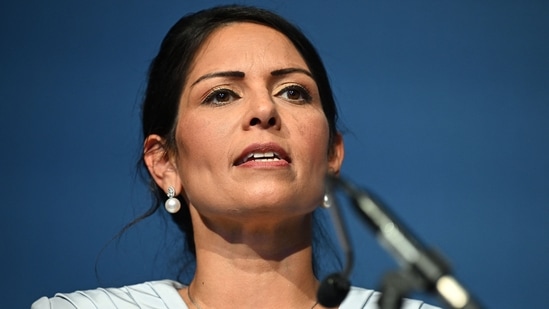Priti Patel, who is often described by her critics as a divisive politician, successfully defended her seat in Witham, Essex, securing 37.2 per cent of the vote and placing ahead of the Labour Party candidate.

The politician of Gujarati descent served as Home Secretary from 2019 to 2022. A member of the Conservative Party, she has represented Witham as an MP since 2010.
She was asked to step down from her position as international development secretary by then Prime Minister Theresa May in 2017 due to unauthorised communications with Israeli officials.
Read: Indian-origin politicians who made it to the House of Commons in the UK
Earlier in 2006, Priti Patel had expressed her support for the “ultimate punishment” for the worst crimes. During a question time debate in 2011, she supported the death penalty although she has since insisted that her comments were taken out of context.
Former Prime Minister Boris Johnson famously characterised Priti Patel as a “hardline” home secretary, humorously suggesting that her policies could transform the UK’s approach to penal policy akin to that of Saudi Arabia.
Patel was born in London to a Ugandan-Indian family and studied at Keele University and the University of Essex. Inspired by Conservative Prime Minister Margaret Thatcher, she initially supported the Referendum Party before joining the Conservatives.
Before entering politics, she worked at the public relations consultancy firm Weber Shandwick. Following an unsuccessful attempt to win a seat in Nottingham North during the 2005 general election, Conservative leader David Cameron recommended Patel for the party’s “A-list” of potential parliamentary candidates.
In April, Patel signed what she touted as a groundbreaking agreement to deport migrants who arrived in the UK illegally to Rwanda. This move stirred controversy among critics, including some Conservatives, who raised concerns about Rwanda’s human rights record and other issues.
In early 2021, the Police Federation of England and Wales expressed a loss of confidence in her as Home Secretary following a contentious decision to implement a pay freeze for officers.
Patel alos questioned the UK’s use of DFID funds to support Palestinian territories through UN agencies and the Palestinian Authority. She had halted a third of Britain’s aid to Palestinians in October 2016 and redirected future funding to focus solely on critical health and education services. Jewish groups, including the Jewish Leadership Council and the Zionist Federation, supported this change.


